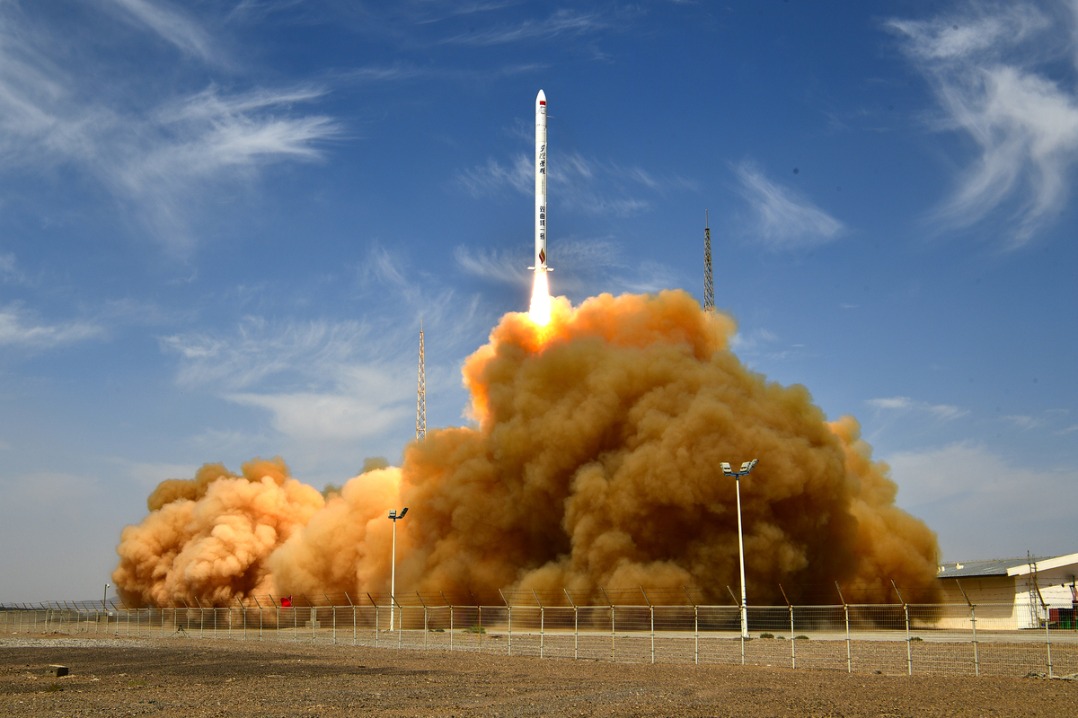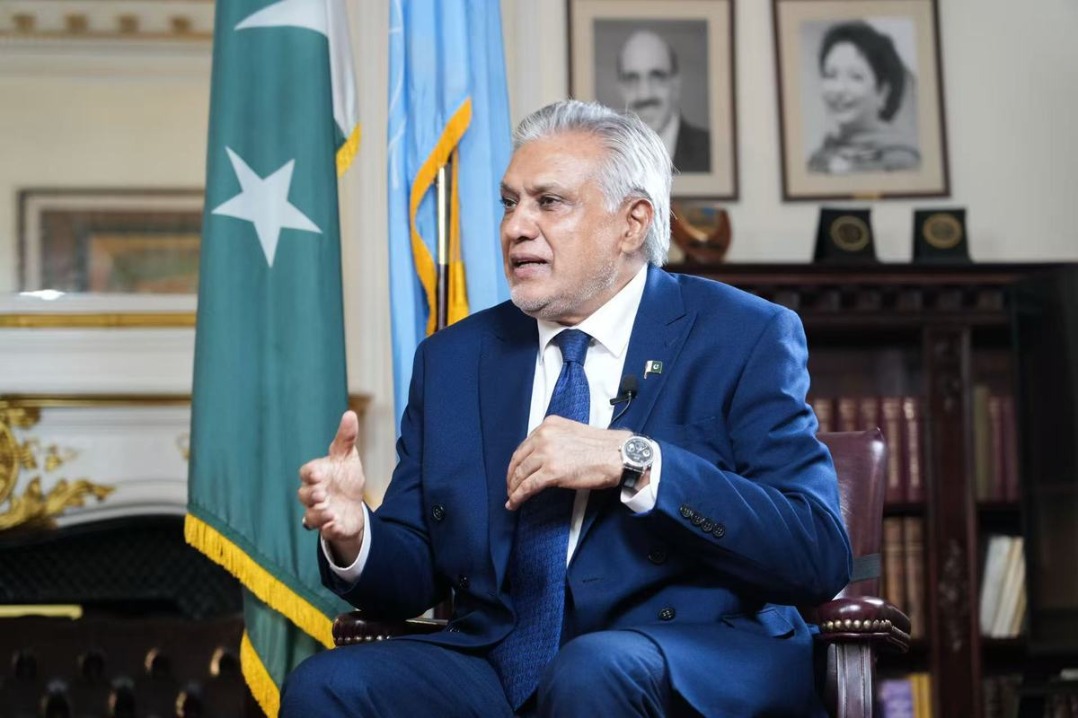Talks to guide, drive US-China climate action


US Special Presidential Envoy for Climate John Kerry discussed climate-related issues with China's climate envoy Xie Zhenhua via video link on Oct 9. It was the fourth time that the two envoys discussed climate since July.
To be sure, Kerry's visit to China in July resumed Sino-US climate diplomacy which had been dormant for 11 months. During Kerry's three-day visit, too, Xie discussed climate-related issues with the former US secretary of state for nearly 30 hours. In each of the subsequent talks, they emphasized their respective country's commitment to maintain close communication and fulfill the requirements outlined in the meeting between the two heads of state on the sidelines of the G20 Summit in Bali, Indonesia, last year.
The continuation of open communication between the two countries is important for advancing China-US climate diplomacy and improving global climate governance. In an era characterized by global turbulence, complex bilateral relationships, and escalating climate crisis, it is more and more imperative that the two largest economies and largest emitters hold regular dialogues on climate. The impact of their meeting transcends bilateral relations, earning the praise of the international community.
First, regular and effective communication is a prerequisite for the healthy development of Sino-US climate diplomacy. In the past decade, China and the US have issued four joint statements (in 2013, 2014, 2015 and 2021) on climate change. Kerry and Xie, aged 80 and 74 respectively, have held more than 20 meetings on climate since US President Joe Biden assumed office. The two countries' cooperation in 2021 yielded concrete results — from a discussion between the two heads of state on the phone on New Year's Eve and the China-US Strategic Dialogue in Anchorage, Alaska, to the meetings between the climate envoys in Shanghai, and the release of the US-China Joint Glasgow Declaration on Enhancing Climate Action in the 2020s.
The tangible outcomes of the talks are reflected in Article 5 of the China-US Joint Statement Addressing the Climate Crisis issued in April 2021. The statement outlines the priority areas for climate action in the next decade. The focus extends beyond decarbonization and new energy to encompass other areas such as reducing emissions from agriculture, buildings, vehicles, planes and ships, as well as cutting non-CO2 greenhouse gas emissions. Maintaining smooth communication on climate will not only prevent conflicts, but also foster cooperation, benefiting both nations and the world at large.
Second, communication between China and the US will play a pivotal role in promoting the UN Climate Change Conference (upcoming COP28) agenda in Dubai, the United Arab Emirates, from Nov 30 to Dec 12. This kind of dialogue is instrumental in improving global climate governance.
Sino-US cooperation on climate was central to the adoption of the Paris Agreement in 2015. Key issues at COP28 will likely revolve around emissions reduction, energy transition, and the financial commitment of developed countries. Given the challenging nature of the issues, communication and coordination among major countries, especially between China and the US, is vital for the smooth proceeding of the Dubai conference.
Third, regular climate dialogue between Beijing and Washington helps both sides to address potential issues and challenges. The implementation of the European Union's Carbon Border Adjustment Mechanism, or CBAM, in October has linked climate change with trade, triggering a ripple effect. Also, countries such as the United Kingdom, Canada, Indonesia, and Japan have been seeking the implementation of the CBAM in different ways.
While the US lacks a legal basis for implementing the CBAM, its efforts to narrow the differences among the Parties to the UN Framework Convention on Climate Change, work on legislation, lobby interest groups, and fix data accounting standards have laid the groundwork for the adoption of the CBAM in the future.
China is opposed to the CBAM, pointing out that any form of trade and technological barriers established in the name of climate change is a unilateral measure that is morally unjustifiable and, in practice, detrimental to addressing the global challenges of climate change.
In this regard, addressing differences through communications and jointly addressing climate-related issues including carbon leakage require more dialogue and compromise and deeper cooperation. This will test the wisdom of both sides, and it is hoped that wisdom will be reflected in the communication between China and the US.
The author is an assistant researcher with the Institute of American Studies, Chinese Academy of Social Sciences.
The views don't necessarily reflect those of China Daily.
































